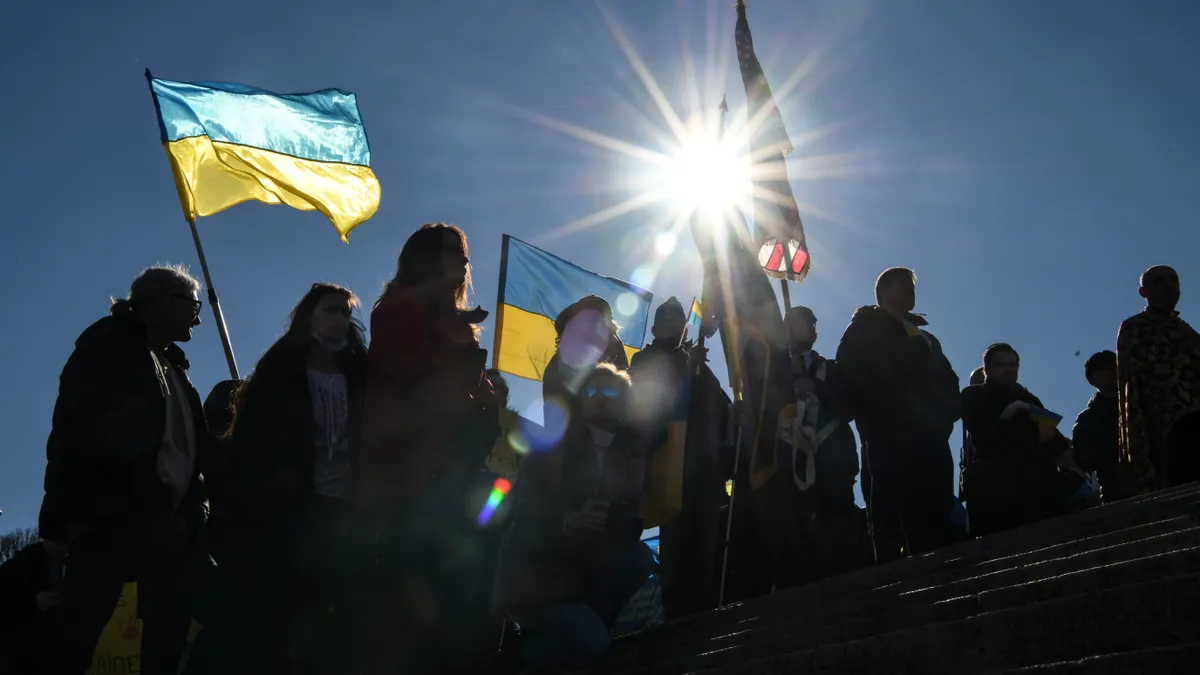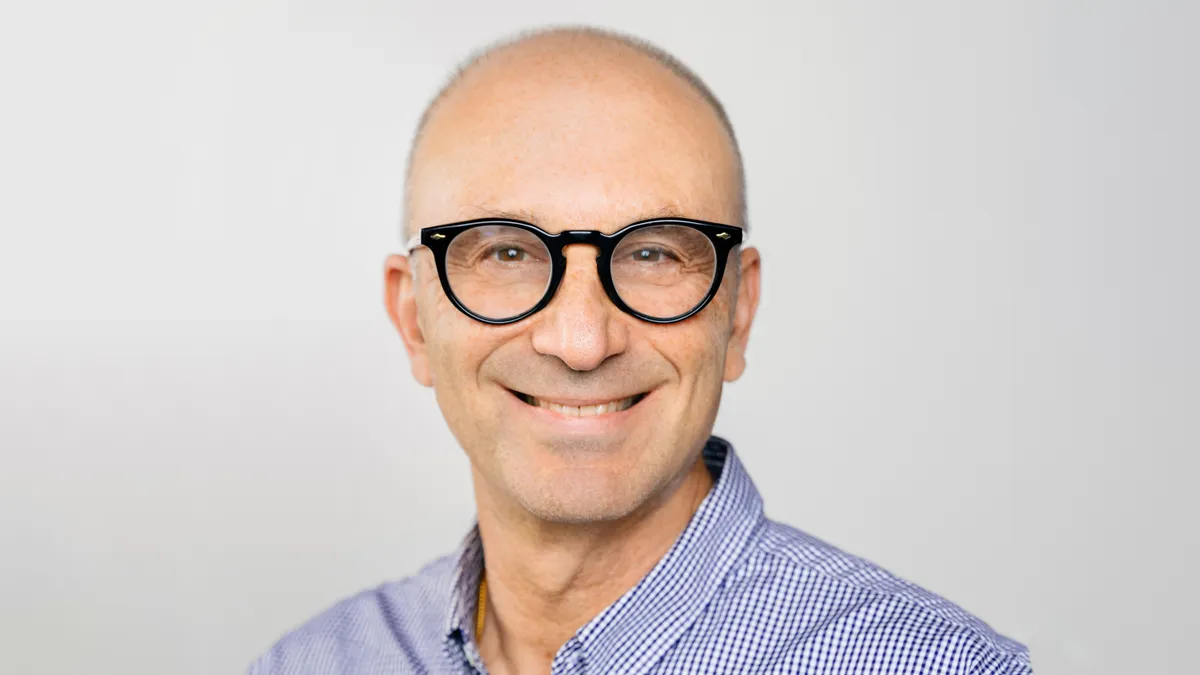Beyond the stunning human toll the Russian invasion of Ukraine has wrought, the violence has also put a stop to clinical trials in the region, harming scientific progress meant to control some of the world’s deadliest diseases.
Since the invasion began at the end of February, ongoing attacks and new sanctions in the region have forced drugmakers to stop recruiting patients and cease plans to launch new studies. According to some experts, the response from the pharmaceutical industry could lead to further deglobalization of the clinical trial infrastructure, a trend that gained momentum as supply chains were strained during the COVID-19 pandemic.
Some of the companies most affected by halted clinical studies have been the U.S.’s Merck & Co. and Switzerland’s Roche. Although Roche’s Ukrainian trial patients represent only about 1.5% of the company’s patient population, they are scattered across 33 global studies, a company spokesperson told PharmaVoice in a statement.
“Our priority remains to ensure that all patients currently enrolled in clinical trials in Ukraine continue to get access to treatments,” the Roche spokesperson said. “The situation for those patients is currently very challenging and we are actively working on solutions to ensure continued access to treatment for these patients, including if they have left Ukraine and moved to other countries.”
Merck is similarly adapting their clinical study approach in Ukraine and Russia, a spokesperson said. The pharma giant operates in almost 60 countries, and the region accounts for about 7% of the company’s active sites. While Merck has stopped screening and enrollment there, they are continuing to treat existing patients, they said.
“We’ve taken these steps out of an abundance of caution and will continue to prioritize the safety of our study participants and investigators,” the Merck spokesperson said.
Among the most impacted therapeutic areas in the Russian region have been oncology, gastrointestinal and dermatological studies.
A reflection of COVID slowdowns
The number of studies taking place in the Russia-Ukraine region has pharmaceutical companies scrambling, much the way they did during the height of the COVID-19 pandemic, Ariel Katz, CEO of the healthcare consulting company H1, says.
“What we’re seeing is a huge, huge push by the industry, and it felt like a COVID wave,” Katz says. “During a COVID wave, everyone was asking how we can help with COVID, and now we’re helping them find new sites outside of Russia and Ukraine.”
And while the war’s impact might resemble COVID in the sense that it has driven widespread slowdown and confusion in the clinical trials space, Katz says this disruption has been more complete and devastating.
“Now, the sites are just shut down — we need to move out of Russia, we don’t know when this is coming back, we should expect it not to come back,” Katz says. “COVID was a pause and here, patients can’t go to the hospital because there are bombs.”
Under normal conditions, H1 helps healthcare companies, from payers to providers and life sciences companies, find the right investigators, the sites and the patients for clinical trials, placing an emphasis on diversity, Katz says.
But now, the combination of the pandemic and war has thrown scientific progress into a tailspin, affecting patients and putting millions of R&D dollars at stake in the pharmaceutical engine.
“This war, on top of COVID, is going to increase the timeline for therapies getting to market, which is super sad, because these are important therapies that are really innovative medicines,” Katz says. “And it’s going to have downstream effects.
The truth is, a pharmaceutical company’s plan for coming back from a crisis — a business continuity plan — has not usually included a pandemic or a war in Europe.
“If there’s a pandemic, it’s hard to plan for that, and hard to plan for Russia deciding to invade Ukraine unilaterally,” Katz says. “I still don’t know if you can create business continuity plans for that, and so the lesson is to be adaptable.”
Part of what becoming more adaptable means for pharmaceutical companies is bringing operations into their own turf, a solution which could help in the short run, but has ramifications down the road.
Facing deglobalization
A trend that Katz has seen, and one that could be further accelerated by the war in Ukraine, is that even multinational companies like pharmaceutical giants will start to act more regionally as opposed to globally to reduce risk. It’s deglobalization of the sector, he says.
“You’re seeing a deglobalization that companies are starting to do because of what they’ve experienced over the past few years,” Katz says. “Business continuity plans are harder if you have a globalized strategy.”
Katz isn’t the only one who sees the world leaning toward deglobalization. A March report from Axios similarly sounded the alarm with respect to self-reliance as a growing virtue, particularly with the breakdown of international relations between existing superpowers.
With globalization, which Katz says expanded during the Obama administration, clinical trials for a company like Merck or Roche spread into many different countries to find the right patients and could do so because relations were strong and economies more interconnected. But if companies see a risk in launching trials overseas, they might take a different stance to protect their R&D dollars.
“If you become more regionalized, that means you run studies in your backyard, and you know that it’s safe there,” Katz said. “That it won’t be shut down because of a war going on in Wisconsin or New Jersey or Toronto or London.”
But regionalized trials could be far less diverse and far less representative of a drug’s ultimate patient population. For a pharma company’s bottom line, regional trials could also be more expensive due to the varying costs between countries. For instance, in the past, trials conducted in countries such as China cost only a fraction of what they cost in the U.S., according to a 2019 report from Nature.
Taking an entire region like Russia-Ukraine out of the global clinical trial landscape will cost time, money and, most importantly, patients’ lives as important treatments languish without available results. And if the world breaks into blocs without a free flow of scientific information and development funding, patients will be the first victims.
“This is going to have downstream effects,” Katz said. “The world is not getting any younger and these therapies are lifesaving — and they’re just going to take longer to get to the market.”




















